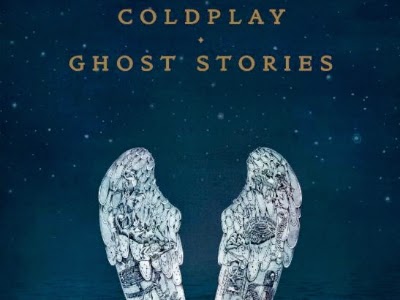BATTLE FOR THE BANDS
Another brief diversion today from my ongoing series of blogs covering TV signature tunes from the past 60 years. They'll pick up again over the weekend, but news is bubbling away about another round in the battle for the music-consuming public's hard-earned cash. The battle is between the major digital download sites and the increasing number of streaming services. The aim is to sign exclusivity agreements with bands for album releases - and thus prevent rivals from being able to download or stream them as well. The prize is to take a near monopoly in providing access to new music.
 |
Coldplay - Ghost Stories
The new album at the centre of an on-line
exclusivity agreement
|
It's been brought to a head by the runaway success of the new Coldplay album, Ghost Stories. With most album sales on a gradual slide, Coldplay are one of the few *big hitters* and sales of 106,000 copies during its first two days of release is testament to that. Apple - via its download service iTunes - agreed an exclusivity agreement with the band. This allowed iTunes to stream it via their download service a week in advance of release - and prevents Spotify from streaming it at all. On the surface, this looks like a band trying to encourage a monopoly, but we need to dig beneath the surface and see what else is at play in this digital clash of the titans.
iTunes sell individual songs or whole albums to the consumer. The price varies slightly, but it's usually less than a physical CD - but still more than the Spotify Unlimited service which is £4.99 per month. A download enables the consumer to have a copy of the file to play on a range of devices - and no further cost is incurred. Spotify has three levels of service - a free streaming service which is paid for by frequent advertising in between songs; the Unlimited Service at £4.99 (which is closed to new customers) and the Premium Service which costs £9.99 a month. The Premium Service allows off-line access and an enhanced sound quality.
 |
Thom Yorke of Radiohead:
Won't let their albums
be used by streaming sites |
On the face of it, the consumer might be attracted by Spotify Premium, but it does mean a regular payment of £9.99 per month: stop paying - and the service is blocked. The other downside is to the artist - Spotify pays an artist £0.0004 per stream, but for many new artists, there is no payment at all, leading to Radiohead withdrawing their albums from the service in 2013.
iTunes costs the consumer around £0.89 per song downloaded - some are more, some are cheaper. Consumers are buying downloads on a lifetime basis, rather than paying for streaming access each and every month. iTunes pays artists a lot more than Spotify for having their music available on its download service - but it is also concerned that streaming services take away some of the potential purchases - hence the desire for exclusivity agreements. Artists thus far don't seem too uncomfortable with this because they know that they'll earn more out of iTunes for a given release if *sales* aren't undermined by Spotify streaming the songs as well. But - and here is a key issue - at what point do fans and consumers start to get fed up with the creeping growth of a digital monopoly?
 |
Beats Electronics - bought by Apple for $3.2bn
|
Spotify claim to have over 40 million active accounts across some 56 countries, each paying a monthly subscription. They have signed up Oasis and Led Zeppelin to their service. There is much money for Spotify to make - even if artists don't feel that they are getting their fair share. But, if bands are closed off to them, their customer base could shrink. Quite apart from this, Apple has recently bought Beats Electronics for $3.2 billion and is likely to be using their expertise to launch its own streaming service alongside its iTunes download service.
Hence the Coldplay exclusivity agreement looming large in this Battle For The Bands. By choking off access to the big acts by Spotify - and then launching its own streaming facility, is Apple looking to provide a knock-out punch? This takes us back to the reality of albums sales: they are in decline and even Coldplay's new release is likely to sell fewer copies than its predecessor Mylo Xyloto. If the future is streaming-shaped, what can Spotify seek to do to protect its subscription base? Exclusivity agreements are less likely whilst their *band rewards* are meagre - or at least perceived to be so by the artists. They need to reassess where they stand and adapt their model - rather than placing messages on their subscriber streaming service *grumbling* that certain artists have "decided not to release (their new) album on Spotify".
And the consumer?
 |
| Seconds Out - Round Two |
Unlike an old High Street record store where a music fan can buy or order any release, the current download/streaming battle means multiple accounts and formats are needed to get the range of music they might like to buy. This may not be an issue that often, but it's a poor sign that a digital service which can make the buying process simple and painless is actually making it overly complex.
No doubt Round Two of this Battle For The Bands will be as equally frustrating and perplexing.
Alan Dorey
22nd May 2014
















